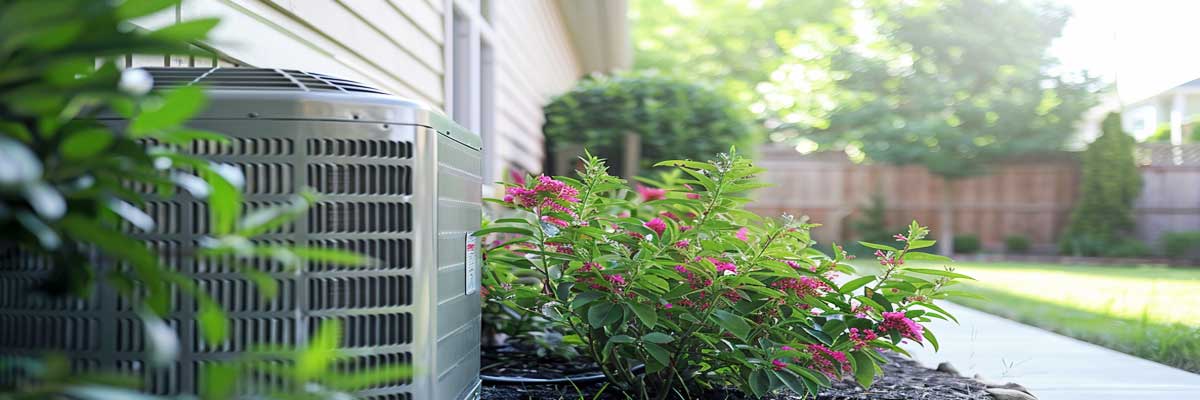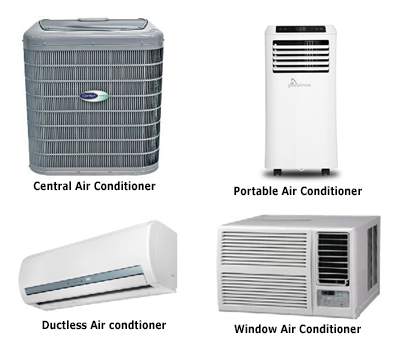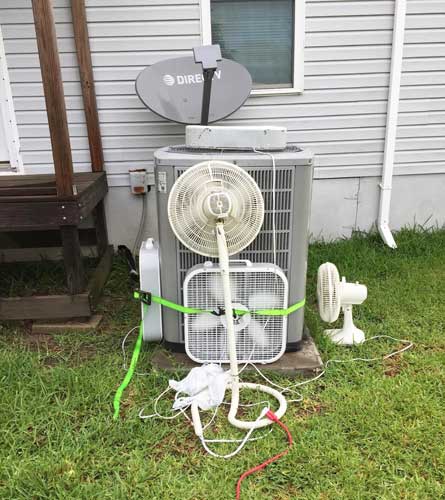
Air Conditioners
How do home air conditioners work?
Home air conditioners work by using a refrigerant, such as Freon, to absorb heat from the air inside a home and transfer it outside. The system includes an evaporator coil, which absorbs the heat, a compressor, which compresses the refrigerant and pumps it to the outside condenser coil, and a condenser coil, which releases the heat outside. The cooled air is then circulated back into the home using a fan. The process is called “air conditioning” because it “conditions” the air in the home by cooling it and removing humidity.
What type of home air conditioners are there?

Each type of air conditioner has its own set of pros and cons, and the best option for you will depend on your specific needs and preferences. It’s best to consult with Sharpe Advantage, a professional HVAC contractor, to determine which type of air conditioner is best for your home.
How can I tell if my air conditioner is not working efficiently?

It is best to schedule a maintenance check-up with a professional, like Sharpe Advantage to know the specific cause of the problem and address it accordingly.
How often should my home air conditioner be serviced?
It is generally recommended to have a home air conditioner serviced at least once a year, ideally before the start of the cooling season. This allows for any necessary repairs or maintenance to be performed before the AC unit is put under heavy strain during the summer. Additionally, regular service can help to extend the lifespan of the unit and improve its overall efficiency.
It is also a good idea to have a professional, like Sharpe Advantage check the unit after a long period of disuse such as during winter.
How can I tell if my air conditioner needs to be replaced?
Here are some signs that your air conditioner may need to be replaced:

It is best to consult with Sharpe Advantage, a professional HVAC contractor, to evaluate the condition of your air conditioner and provide recommendations on whether it should be repaired or replaced.
Contact Sharpe Advantage to discuss your air conditioning needs
Air Conditioning Service Areas
We provide AC repair, installation, and maintenance throughout Durham Region and the GTA:
- Ajax – AC repair and installation
- Whitby – Our home base, fast response times
- Oshawa – Heating and cooling services
- Toronto & GTA – Serving the entire Greater Toronto Area
- Pickering – Complete HVAC services
- Markham – Heating and cooling experts
Call 905-441-5466 for air conditioning service in your area.

